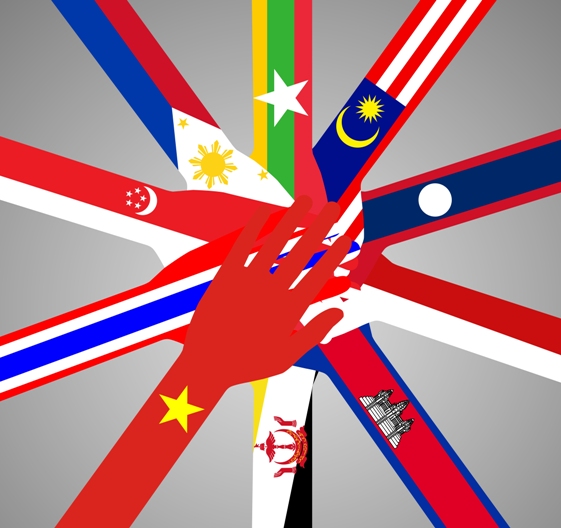 What happens when you put Buddhists, Catholics, and Muslims together in one place? You either get politically incorrect material for those “guy-walks-into-a-bar” jokes, or you get a glimpse of what it’s like to be in one of the fastest growing regions in the world today. The 10 countries that comprise ASEAN (Association of Southeast Asian Nations) have a combined population of 620 million, and a market estimated to be worth US $2.4 trillion. These countries are all expected to grow at least 5.5% a year through 2017 – a much higher growth rate than that projected for the US, the EU, or Japan.
What happens when you put Buddhists, Catholics, and Muslims together in one place? You either get politically incorrect material for those “guy-walks-into-a-bar” jokes, or you get a glimpse of what it’s like to be in one of the fastest growing regions in the world today. The 10 countries that comprise ASEAN (Association of Southeast Asian Nations) have a combined population of 620 million, and a market estimated to be worth US $2.4 trillion. These countries are all expected to grow at least 5.5% a year through 2017 – a much higher growth rate than that projected for the US, the EU, or Japan.
The diversity of religions and cultures can be intimidating, but they all have one thing in common: a culture of sharing and giving to those in need. In fact, according to the World Giving Index 2014 published by the Charities Aid Foundation, 3 of the Top 20 countries in the world are in ASEAN: Myanmar (which tied with the USA at number 1), Malaysia, and Indonesia.
While Myanmar’s economy, estimated at US $53.14B, is small enough that Bill Gates or Warren Buffet could buy it and still have change left over, its people are outstandingly generous, driven primarily by its Buddhist culture (which it shares with Thailand, Vietnam, Cambodia, and Laos). Malaysia and Indonesia are predominantly Muslim and practice zakat, or compulsory charity, which is the third pillar of Islam. (Zakat is defined as “an obligation for those who have received their wealth from God to respond to those members of the community in need.”) When the Philippines, another member of ASEAN, was hit by the world’s strongest typhoon in November 2013, both Malaysia and Indonesia quickly responded to help their predominantly Catholic neighbor.
As the only Catholic country in ASEAN, the Philippines likewise has a culture of giving, both to the Church and to people in need. The Johns Hopkins Center for Civil Society Studies estimates the value of volunteering and giving, as a share of Philippine GDP, at 1.18% (more than twice the share of Brazil, which stood at .50%).
Although the member countries are working to make ASEAN an economic bloc similar to the EU starting this year, most agree that this will not be a simple or quick undertaking. Nevertheless, most of the ASEAN countries have already put agreements in place that will allow relatively free and open trade with each other. This opens the potential for nonprofits to work together within ASEAN to meet a common goal: learn best practices from one another, and develop fundraising programs that work better together, be they Muslim, Catholic, or Buddhist.
J. Richard “Dickie” Soriano is President of BCD Pinpoint—the only full-service CRM agency in the Philippines and one of the largest in Southeast Asia—and a guest contributor to Innovairre Communications, which supports more than 500 nonprofit organizations around the world. For more information about fundraising in the US and internationally, contact us at Answers@ Innovairre.com. Subscribe to our newsletter here. Follow us on LinkedIn and Twitter.
